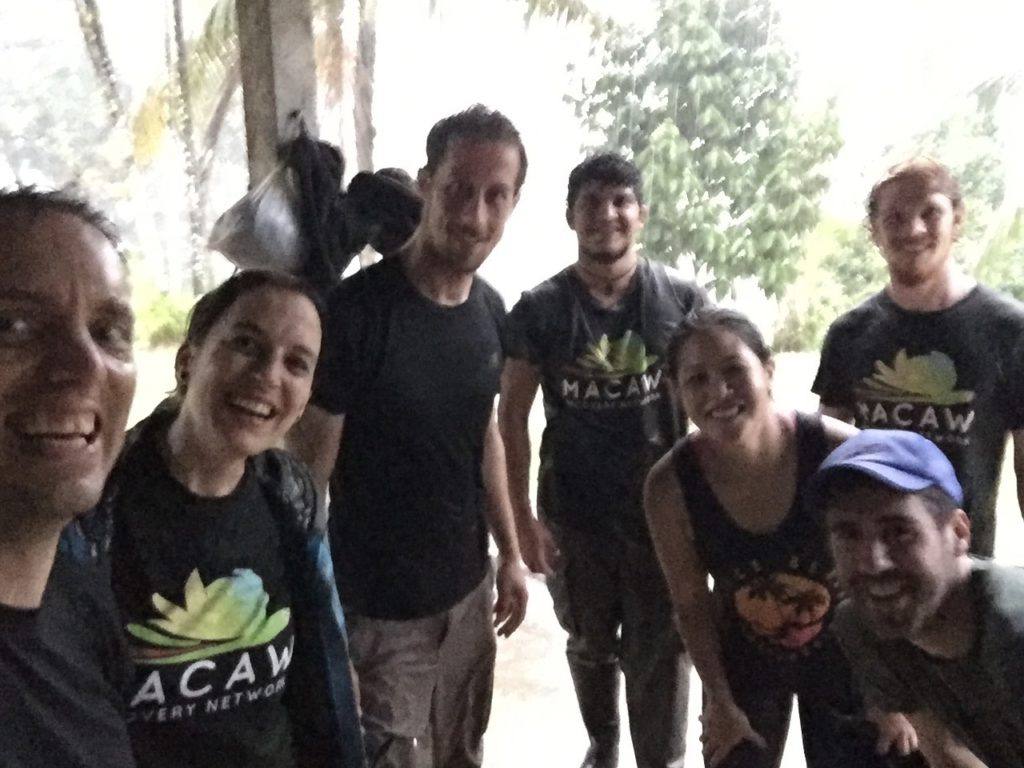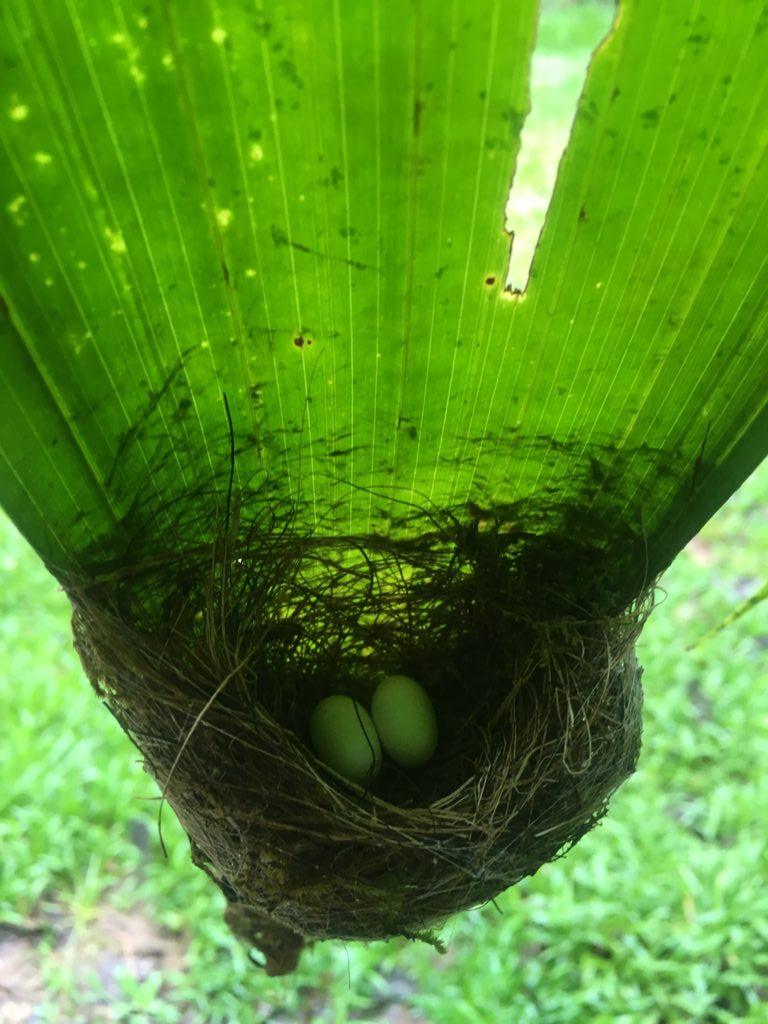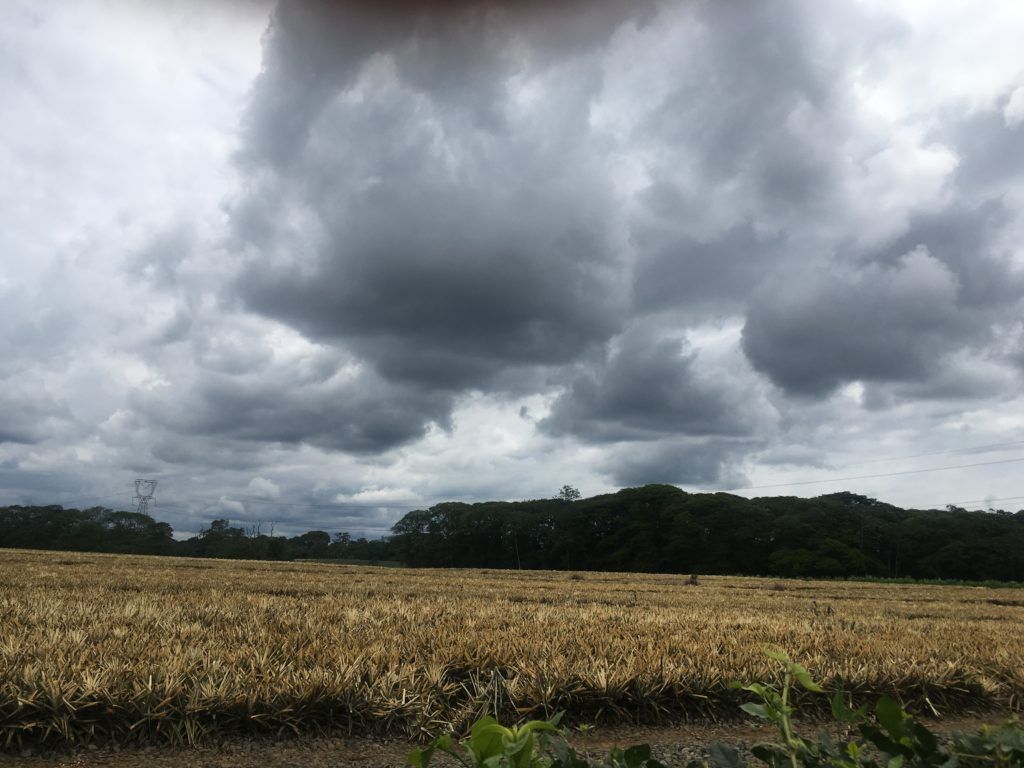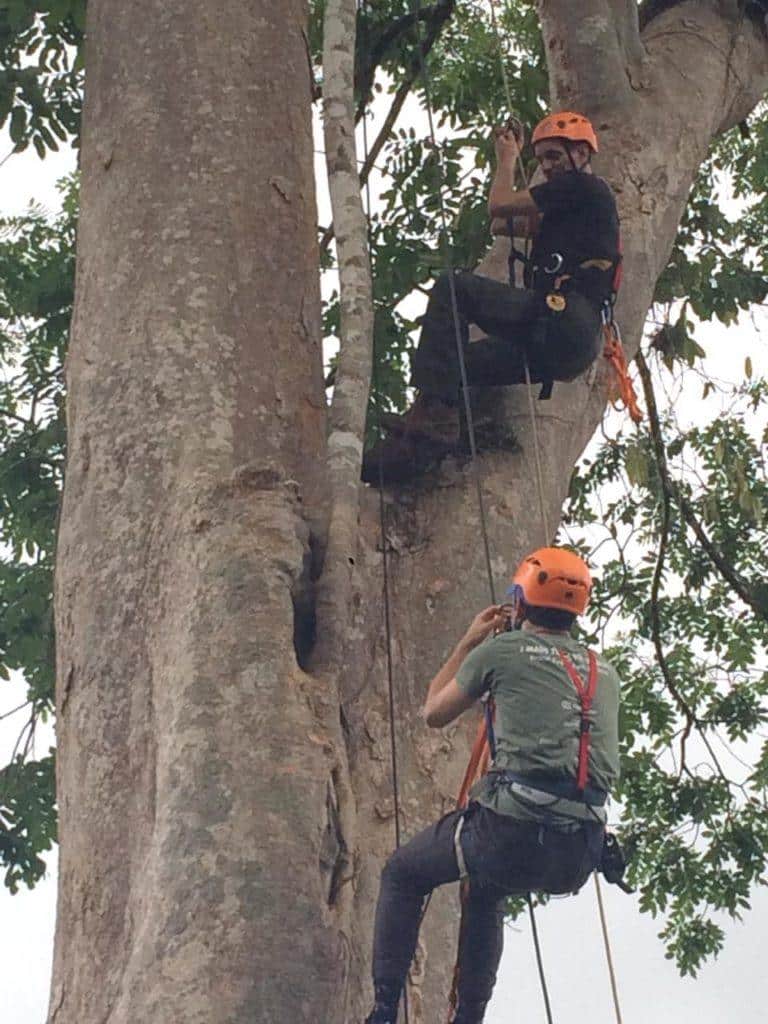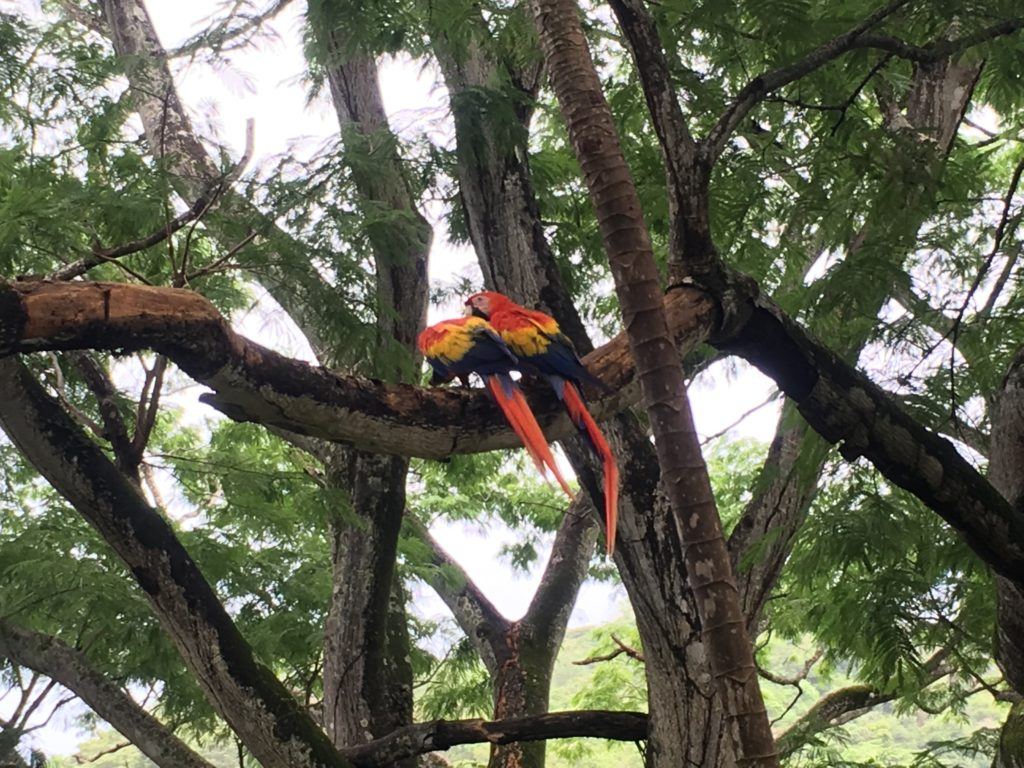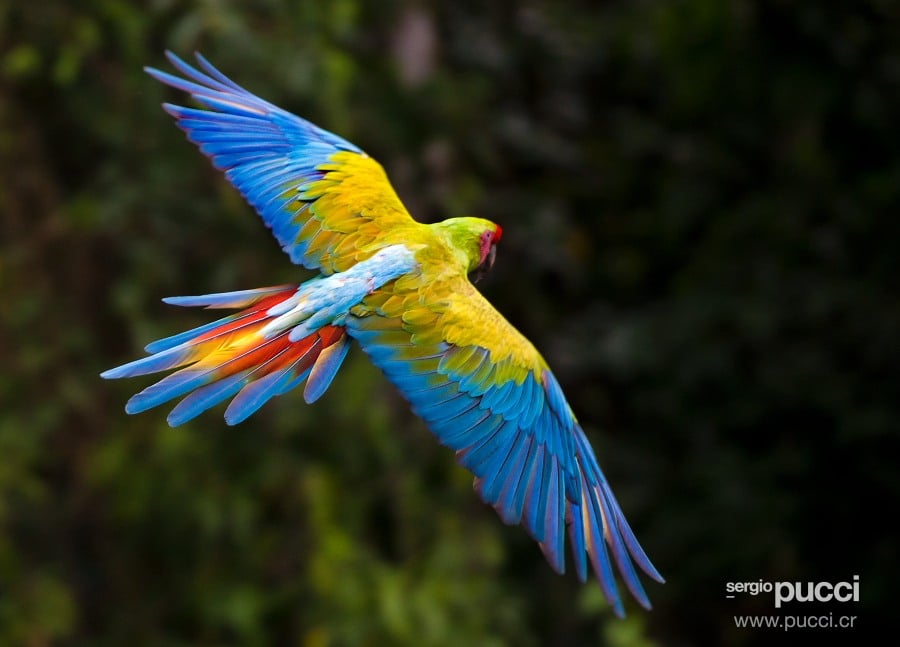
Mario’s alarm goes off at 5am, as the Costa Rican sun rises and the warm weather kicks in. He pulls back the mosquito net to get out of bed, and begins getting dressed in clothes that are still a bit damp. Although Mario hung out his laundry the day before, it’s a challenge to get anything to dry properly here in the rainforest, where the Macaw Recovery Network is doing research on great green macaws. As the Great Green Macaw Field Program Manager, Mario knows that the humidity of the rainy season also means breeding season for the macaws. With that in mind, despite the early morning damp clothes, the MRN research team are determined to make sure that the new generation of macaws make it through the rain.
The group departs from the research station early to visit their first nest site of the day. Getting to the site involves trekking through the muddy forest, and along the way, the group spots a range of wildlife: poison dart frogs, otters in the river, and even a close up of a hummingbird nest. Most of this wildlife is visible from the ground floor, but scaling up to a great green macaw nest is the real challenge. Great green macaws nests are highly dependent on the towering Mountain Almond Tree, which can grow up to 50 meters tall and live for up to 650 years old. Mountain Almond Trees provide food and water for the macaws, while their cavities also supply a safe location for nesting. Extensive field studies conducted by the Macaw Recovery Network this year indicate that 85% of the Macaw’s nests are found in these particular trees. With only a few hundred great green macaws left in Costa Rica, protecting these trees is a top priority to guarantee the survival of the macaws.
While looking up at the astonishing tree, Mario and the team toss up a line of rope to begin scaling their way up. As they climb, the shocking view of the surrounding landscape becomes clear. Sweeping crop plantations of pineapple across this region have crept in on the Mountain Almond Trees and the rainforest habitat for the macaws. Although the Costa Rican high court prohibited cutting of the Mountain Almond Tree in 2008, illegal logging remains a major threat to the tree. In addition, leaving the Mountain Almond Tree standing alone in open agricultural areas exposes them to major threats for their long-term health. With every visit to a mountain almond tree, the MRN team also takes measurements to continually monitor the tree’s health.
Usually, approaching a macaw nest is risky business, as the parents are very protective of their chicks, and rightfully so, to protect from any predators. However, the MRN team has been monitoring these nests for long enough to know the perfect time to climb. Each morning, when the mother departs the nest to forage for the chicks’ breakfast, the research team has a brief window to peer inside the nest. Based on previous visits, they know that there were two great green macaw chicks in this cavity, and luckily today, they remain in the nest, healthy and showing signs of maturity with their bright feathers.
If any chicks being monitored ever do need assistance or rehabilitation, the Macaw Recovery Network steps in to aid them to recovery. On the Pacific coast of the country, MRN is currently working to rehabilitate and reintroduce Scarlet Macaws, a species that was previously locally extinct in the area. Now, thanks to their work, a wild population is once again active in the region. The MRN team will continue to monitor macaw nests around Costa Rica to learn more about chicks’ survival rates and the population status.
After a long day of monitoring, Mario and the Macaw Recovery Network team return to the research station to cook up a family-style dinner, until they continue their work again early tomorrow morning. With their critical research on great green macaw habitat, the Macaw Recovery Network demonstrates the importance of this region for macaw habitat. By maintain this primary rainforest, there will be plenty of healthy Mountain Almond Trees full of great green macaws long into the future.
If you would like to visit the Macaw Recovery Network and see these majestic birds for yourself up close and personal, you can book a visit today through our partners at Airbnb.


